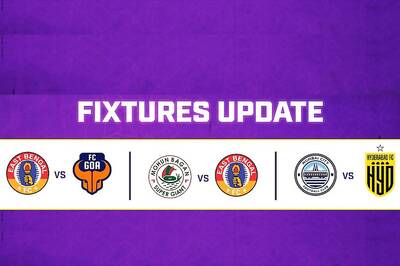
views
Neelima, a 16-year-old from Anantapur, is like any other girl. Keen on making a mark of her own, she was looking forward to joining a college. But as ill-luck would have it, she ended up lifting bricks in the city, watching girls of her age living her dream. Blame it on poverty or whatever, it was her parents who condemned her thus.Luckily for her, she got a lifeline from Childline, a Mumbai-based children’s help centre. Thanks to it, just a week back, Neelima was sent to her parents and she’s into studies again.Her's is not an isolated case. Childline, which operates in 172 cities/districts in 30 States, receives a number of calls everyday — some calling for help to trace runaway children, others buzzing to help rescue a child forced into work.Childline, which started its operations in Hyderabad in 1998, works in partnership with the Ministry for Women and Child Development, NGOs, UNICEF and academic institutions.In the twin cities, it works in coordination with NGOs, Divya Disha, CSIM and SIDUR. It has a call centre at the police control room in Basheerbagh with three activists manning it round-the-clock. All one has to do to rescue a child in distress is call 1098.“Most of the complaints in the city pertain to abuse of children by family members. A lot of complaints also come against those who use children as slaves in the name of domestic helps,” explains Ramesh Babu, head of organisation development at Divya Disha.Lifeline for the poorAccording to him, Childline gets over 200 calls a day in the city. These calls include calls for intervention, reference and information, and calls for missing children. Intervention calls include calls by children who are in distress, children who need emotional support and by people who want to complain about child labour/abuse going on at some place.A majority of the calls come from illiterate, poor parents in need of information about hospitals and other government institutions for their children.In the month of November, Childline received 7,268 calls of which 3,117 were for information and references and nearly 60 were for intervention. Asked if the cases of child abuse and child labour are decreasing as the number of the calls is not very high for intervention, Ramesh Babu explains, “such cases are on the rise but many go unreported.”Childline members go to schools and slum areas to make children aware of their rights and to inform them of the 1098 service. “We also educate public telephone booth operators because many of them charge children for the call even though 1098 is a free service,” says Ramesh Babu.How it worksThe Childline team first registers a complaint and then contacts the police station of the area and visits the place with the police. It also conducts campaigns at railway stations with the help of RPF personnel. A number of calls, 353 to be exact in the month of November, were silent calls, which Ramesh says, are by children who call but are too scared to talk. The phone receivers keep talking during such calls to encourage the children to talk. It takes a few calls for the children to come out of the closet and talk about their problem.PrankstersIt is an ugly truth that many times prank calls are made and false information is given about some child in distress because of which time and energy is wasted to rescue a phantom. Last month, 600 crank calls and 150 abusive calls were made, reveals Ramesh Babu.




















Comments
0 comment